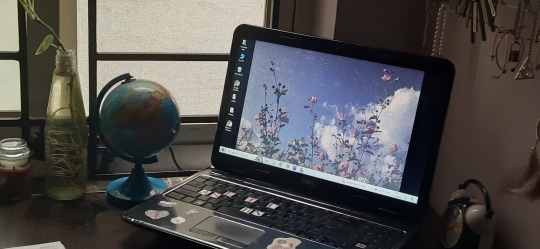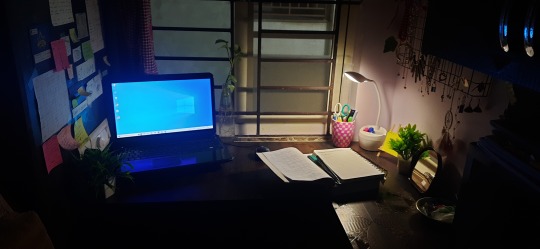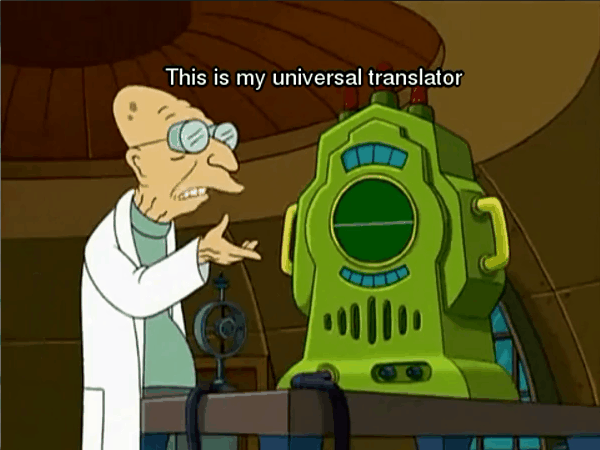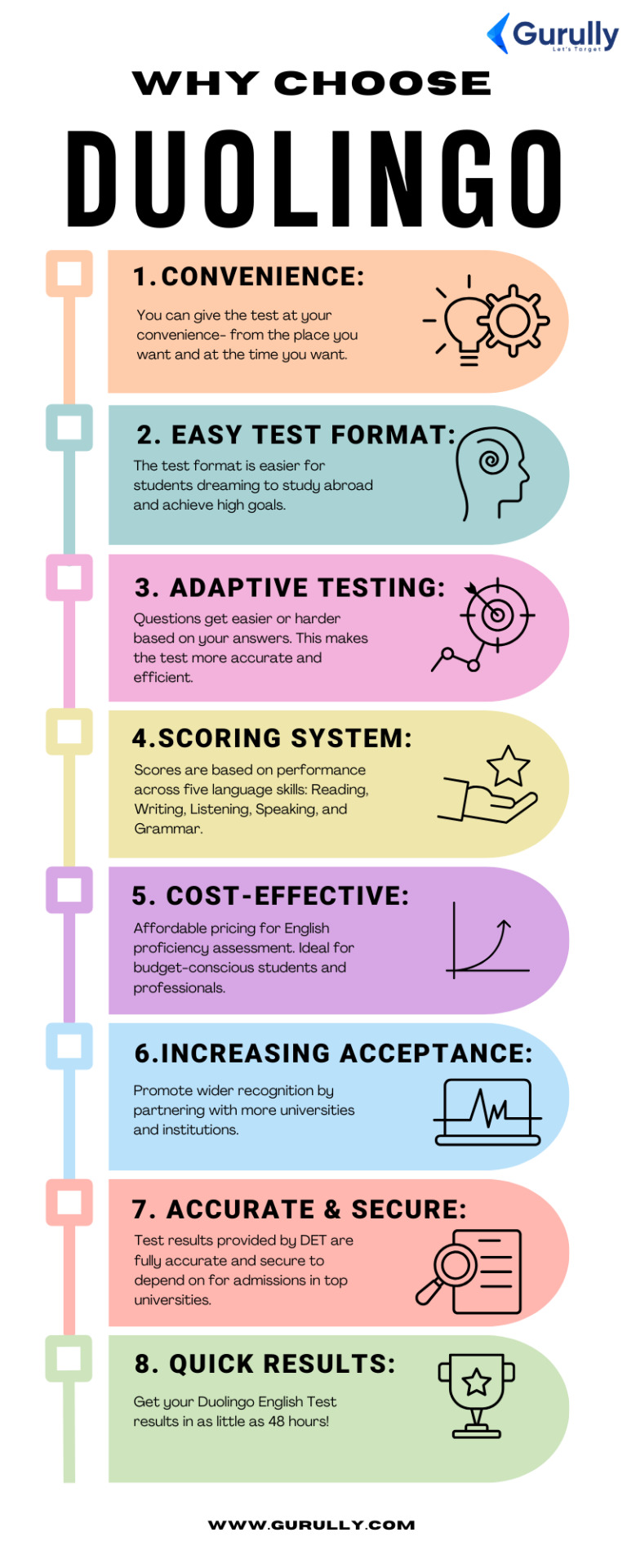#duolingo English test practice
Explore tagged Tumblr posts
Text
7 Day DUOLINGO Preparation Tips

Get ready for the Duolingo English Test with our 7-day Duolingo preparation Tips! Follow these daily practice tips and strategies to boost your skills and confidence for a high score.
#Duolingo preparation Tips#duolingo english test practice#duolingo english test#duolingo practice test
1 note
·
View note
Text
7 errors to avoid when taking the Duolingo English test.
Introduction
Duolingo is a free online language learning platform that offers courses in a variety of languages, including English. The Duolingo English Test (DET) is a computer-based assessment that measures your ability to use and understand English.

The DET is a great way to assess your English skills and to see how you would perform in an English-speaking environment. However, it is important to avoid making mistakes on the DET, as these can impact your score.
Mistakes to Avoid:
Not Practicing Enough
The first mistake that you should avoid on the Duolingo English Test is not practicing enough. The DET is a timed test, so it is important to be familiar with the format and the types of questions that you will be asked.
The best way to practice for the DET is to take practice tests. There are many practice tests available online and also, you can get top coaching for Duolingo exam which is very beneficial. When you take practice tests, be sure to time yourself and to review your answers. This will help you to identify areas where you need to improve.
Not Understanding the Instructions
The second mistake that you should avoid on the Duolingo English Test does not understand the instructions. The instructions are clear and concise, but it is important to read them carefully before you start each section.
If you do not understand the instructions, you may not be able to answer the questions correctly. So, be sure to read the instructions carefully and to ask for help if you need it.
Making Grammatical Errors
The third mistake that you should avoid on the Duolingo English Test is making grammatical errors. The DET is a test of your ability to use and understand English grammar. So, it is important to make sure that your grammar is correct when you answer the questions.
Using Incorrect Vocabulary
The fourth mistake that you should avoid on the Duolingo English Test is using incorrect vocabulary. The DET is a test of your ability to use and understand English vocabulary. So, it is important to make sure that you are using the correct vocabulary when you answer the questions. If you are not sure about a particular word, you can always look it up online.
[Learn more: What You Should Know About the Duolingo English Test]
Not Listening Carefully
The fifth mistake that you should avoid on the Duolingo English Test is not listening carefully. The DET includes a listening section, and you will need to be able to understand what you are hearing in order to answer the questions correctly. It is important to listen carefully to the audio recordings and to take notes if necessary. This will help you to understand the questions and to answer them correctly.
Rushing through the Test
The sixth mistake that you should avoid on the Duolingo English Test is rushing through the test. The DET is a timed test, but it is important to take your time and to answer the questions carefully. If you rush through the test, you may make careless mistakes. So, it is important to pace yourself and to give you enough time to answer each question correctly.
Not Reviewing Your Answers
The seventh and final mistake that you should avoid on the Duolingo English Test is not reviewing your answers. After you have finished answering the questions, you will have a chance to review your answers. This is a very important step, as you may be able to identify mistakes that you made. So, be sure to review your answers carefully before you submit your test.
Conclusion
By avoiding these 7 mistakes, you can improve your Duolingo score easily. Just remember to practice, to understand the instructions, to use correct grammar and vocabulary, to listen carefully, to take your time, and to review your answers.
#duolingo exam#duolingo English test practice#duolingo practice test#duolingo online test#duolingo English#duolingo test#duolingo English test
0 notes
Text
10+ Duolingo Writing Topics with Sample Answers
The Duolingo English Test (DET) has become a popular choice for those looking to prove their English language proficiency quickly and affordably. One of the essential sections of this exam is the writing part, which evaluates your ability to construct clear, grammatically correct responses. Understanding the types of questions you may encounter can help you prepare effectively and boost your confidence on test day.
In this blog, we will explore 10+ writing topics, discuss the types of questions you may face, and provide sample answers to help guide your Duolingo English test preparation.
1. Describe a Situation (50 Words)
In this question type, you are asked to describe a specific situation or event using 50 words. This tests your ability to provide concise and clear descriptions.
Sample Question: Describe a time when you worked in a team to achieve a common goal.
Sample Answer: During a school project, my team and I collaborated to create a presentation on climate change. I focused on research while others handled visuals. We communicated well, dividing tasks efficiently. In the end, our efforts paid off with an excellent grade.
2. Respond to an Argument (50 Words)
You may need to respond to a particular argument or statement. This question tests your critical thinking and ability to articulate your views.
Sample Question: Some people believe online education is more effective than traditional classroom learning. Do you agree?
Sample Answer: I believe online education offers more flexibility, especially for working professionals. However, traditional classroom learning provides better interaction and focus, which some students need. Both have advantages, but a blend of both seems the most effective approach.
3. Write About a Picture (75 Words)
In this task, you will be given an image and asked to describe it. This tests your observational skills and ability to express what you see.
Sample Question: Describe the picture below.

Sample Answer: The image shows a family sitting in a park. The parents are smiling, enjoying a picnic under a large tree, while two children play with a ball nearby. A bright sun shines in the background, creating a cheerful and peaceful scene.
4. Express Your Opinion (100 Words)
Here, you are required to share your opinion on a given topic, explaining your viewpoint clearly.
Sample Question: Should governments invest more in healthcare or education?
Sample Answer: Both healthcare and education are vital sectors, but I believe education should be prioritized. A well-educated population contributes to economic growth and better decision-making. However, without proper healthcare, people cannot fully benefit from education. Balancing investment in both sectors is essential for overall development.
5. Creative Writing (50-100 Words)
This task allows for creativity, where you can imagine scenarios or create fictional content.
Sample Question: Write a story about a person who found a hidden treasure.
Sample Answer: While hiking in the mountains, John stumbled upon an old wooden box buried beneath a tree. Curiosity piqued, he opened it and found golden coins, jewels, and an ancient map. Unsure of its origin, he decided to embark on an adventure to uncover the mystery behind the treasure.
6. Compare Two Concepts (50 Words)
In this question type, you will need to compare two ideas or concepts, highlighting their similarities and differences.
Sample Question: Compare traditional books and e-books.
Sample Answer: Traditional books offer a tangible reading experience with no need for power. E-books, however, are portable and allow you to store thousands of books on a single device. While e-books are convenient, many still prefer the feeling of holding a real book.
7. Write a Letter (75-100 Words)
You might be asked to write a formal or informal letter, testing your ability to address different audiences appropriately.
Sample Question: Write a letter to your friend, inviting them to your birthday party.
Sample Answer: Hi Sarah, I hope you’re doing well! I’m writing to invite you to my birthday party next Saturday at my place. It’ll be a fun evening with games, good food, and music. I really hope you can make it! Let me know if you can come. Best, Anna
8. Describe a Process (75 Words)
In this task, you will need to explain a specific process, such as how to do something.
Sample Question: Describe the process of making a cup of tea.
Sample Answer: First, boil water in a kettle. Once boiled, pour it into a cup containing a tea bag. Let the tea steep for 2-3 minutes. Add sugar, milk, or lemon according to your preference. Stir well and enjoy your freshly brewed tea!
9. Summarize a Paragraph (50 Words)
This question asks you to read a short paragraph and summarize the main points.
Sample Question: Summarize the following: “Exercise is essential for maintaining good health. It helps to reduce the risk of chronic diseases, improves mental well-being, and promotes better sleep.”
Sample Answer: Exercise is crucial for health, reducing disease risks, improving mental health, and enhancing sleep quality.
10. Explain a Trend (100 Words)
You may be asked to explain a current trend or phenomenon, showing your awareness of contemporary issues.
Sample Question: Explain the rise of remote work in recent years.
Sample Answer: Remote work has become increasingly popular due to advances in technology and the flexibility it offers employees. The COVID-19 pandemic accelerated this trend as businesses shifted to home-based work. Today, many companies continue offering remote work options, citing increased productivity, lower costs, and better work-life balance for employees.
Conclusion
The Duolingo English Test writing section may seem daunting, but understanding the different types of questions and practicing your responses can significantly improve your performance. From describing situations to summarizing ideas, the range of writing tasks tests various skills. By familiarizing yourself with these question types and practicing sample answers, you can feel more confident and prepared for the writing section of the Duolingo English Test.
Start practicing with these examples to enhance your writing skills and achieve your desired score on the test.
Good luck!
0 notes
Text
Summer 2024 travel plans and Language Guinea Pig Diaries
In August and September, I'm doing a bunch of travel to various European countries. In order, they are:
Glasgow, Scotland for World Science Fiction Convention (WorldCon), where I'll be on a panel about Languages as World-Building and doing assorted meetups
Helsinki, Finland for the Societas Linguistica Europea annual meeting
Tartu, Estonia for a colloquium talk on Applying Linguistic Methods to Linguistic Communication at the University of Tartu and a two-part workshop on lingcomm for participants of Methodological Excellence in Data-Driven Approaches to Linguistics (MEDAL)
Nijmegen, Netherlands for some meetings with linguists
Florence, Italy to visit friends
Madrid, Spain for the publication of the Spanish translation of Because Internet by Pie de Página
I hope to run into lots of interesting people at these events! If you're already in one of these places and I know you, including from the interent, feel free to reach out and see if we can fit something in!
This whirlwind list of events and places has also gotten me thinking: this trip is going to be a fun chance to learn some more about some languages! I'm already fairly familiar with Spanish and Scottish English (I doubt people will speak much Broad Scots to me with my Canadian accent), and I'm confident on my ability to brush up on them by a bit of exposure and possibly watching a relevant movie on the way there, but the other four languages are going to take a bit more doing. Here's my initial situation, in order of familiarity:
Italian - I studied it for two years in undergrad and spent about a week in Italy shortly thereafter, and by the end of the week I was finally beginning to feel like it was starting to "click" but then I haven't really touched it since then. So I feel like it would come back with exposure but I wonder if there's something I could do in advance to help it come back sooner/faster rather than taking the whole week of being there again
Dutch - I went through the whole Duolingo tree on rapid-speed back when you could skip through lessons for new material only and not practice drills over about a year in 2019-ish just for fun and as an excuse to look up lots of Germanic roots (I studied German before I knew any linguistics so it was fun to triangulate there). Never actually been anywhere Dutch was being spoken but I did find I could get the gist of youtube videos about linguistics in Dutch so it probably needs "activation" similar to Italian
Finnish - No background except for a few linguistics factoids (case! vowel harmony!), and that it's a Uralic language (related to Hungarian but not to any of the Indo-European languages, so this is a fun chance to learn some things about a language family that's unfamiliar to me)
Estonian - Also no background, also Uralic, clearly the fun thing to do would be to learn enough bits of Estonian and Finnish that I could compare them with each other (also since I'm meeting with linguists in both countries, this would be a fun topic for small talk conversation)
At the same time, there are a lot of language learning strategies floating around out there, and I have two nearly matched pairs of languages on this list: Italian and Dutch, both of which I am pretty good at cognate languages for and have studied some a while back, so I could test two activation strategies, and Finnish and Estonian, both of which I have essentially zero familiarity with, so I could test two strategies for getting somewhere near a basic functional ability.
I have about a month until I start this cycle with a flight to Helsinki. One month, four languages. What could possibly go wrong?
Here's my tentative plan so far:
Activation, Italian and Dutch - I'm pretty sure what I need for these languages is largely as much audio imput as possible (given what's feasible around like, all the other things going on in my life). I've decided to aim to watch one or two youtube videos in Italian per day, focusing on relatively concrete, daily life topics (such as gelato making) and to listen to one episode of a podcast in Dutch per day, aiming to get through the back catalogue of Kletsheads, a podcast about multilingual children.
Why these strategies? Well, I'm meeting up with linguists in the Netherlands but not in Italy, so it makes sense to try to learn more linguistics vocab there. Also, I'm curious about the effect of medium between video and podcast: will being able to see people talking and what they're talking about have much of an effect on how much I can understand? Will I find it easier to integrate one or the other of watching videos vs listening to podcasts into my life at a practical level? Plus, will concentrating on a single, more academic topic vs watching a scattered, unsystematic list of videos have effects on my vocabulary?
Basic function, Finnish and Estonian - I'm probably looking for some phrases to say to people in shops and restaurants and the ability to pronounce things written on menus adequately and match heard words/placenames to written versions on signs. I started doing a very minimal one lesson a day on Duolingo for Finnish in January, when planning for this trip started, for the very simple reason that I was already familiar with Duolingo and it doesn't have Estonian, so I decided to just start by doing a thing I was familiar with until I got around to doing more research. I've been casting around trying to figure out a source of basic Estonian phrases online when a friend mentioned learning French on tiktok, so I searched for "learn estonian" and voila! I think I'll also aim for a video or two of Estonian phrases per day but I want to do more rewatching than with Italian or Dutch, since I'm aiming to remember specific common phrases. So maybe one rewatched video and one new video, per day? They're shorter on tiktok than on youtube.
Why these strategies? This is a comparison of Duolingo's more systematic approach with lots of repetition and gamification and word-by-word translation in a relatively sterile environment versus a more organic and free-styling approach with more grounding in real people and faces and full phrases where I'm not really trying to understand the individual words. There are lots of factors to compare and it's not a completely fair comparison since I started Duolingo in January and I only thought to start the TikTok idea this week, but hey, learning anything still counts as progress.
Summary: I have four languages, each focused on a different app: YouTube, my podcast app, Duolingo, and TikTok. Hopefully for the video apps, this will help their algorithms kick in and start recommending me further useful videos. The difference between the two video strategies is that for Italian, I'm watching monolingual videos that are aimed at people who already speak Italian and just want to learn something about the topic, whereas for Estonian, I'm watching bilingual videos aimed at English speakers who want to learn some words or phrases in Estonian.
Am I going to get these four languages mixed up? Probably! I'm hoping that choosing a different app/strategy for each is a little bit helpful on that front.
Do I think these strategies are optimal? Probably not! But I'm aiming to choose things that feel relatively clear to implement consistently, rather than getting bogged down in researching language learning methods instead of actually getting exposure to the languages. I'll probably do a basic "look up some key phrases and try to learn them" a day or two before entering each place too. And maybe shift other aspects depending on how things are going, stay tuned!
At any rate, I figured it would be more fun to blog about my attempts to use myself as a guinea pig for a few different language learning strategies here than to just do it in my own head (and hopefully help me with staying motivated). And maybe people will have tips of either language learning strategies that have worked for you in general or specific ideas for these particular languages, so this is the beginning of a series that I'm calling #Language Guinea Pig Diaries and future posts will also be posted under that tag!
#linguistics#languages#language learning#learning languages#foreign languages#language guinea pig diaries#italian#dutch#finnish#estonian
47 notes
·
View notes
Text
the pages are turning~

a months old pic of my desk
29th august 2024
day 4/50 - productivity challenge
🕒 6:00 a.m.
sleep deprivation is hitting. eating leftovers and coffee for breakfast.
checked notifs
actually ate some goddamn breakfast
not me realizing that i barely eat 2 meals every school day..
revised psychology: ch-1: what is psychology
here's a (self) reminder to actually go study instead of procrastinating 30 mins by watching study motivation videos.
also i recommend listening to non-lyrical music while studying. i personally listen to classical piano music. this is what i was listening to today morning.
showered
morning skincare
extended duolingo streak
aaand off to school. thought i would be late but honestly i've been reaching at the correct time all these days. if i leave my house by 8:05 then i'm good.
at school i first had physics and then 2 continuous chemistry classes (the teacher is good but her classes are so draining ugh).
completed physics classwork (the stuff i missed when i was absent on tuesday)
did the OCEAN test in psychology class! idk why but i love personality tests. i'll discuss my results with my teacher tmr hopefully but what i gathered is that i'm an ambivert leaning to introversion and ok emotional regulation & stability. my other classmate was very much an extrovert with higher tendency to take others' words to heart. we bunked the last 2 english classes together in the library lol. also want to say that i'm so ashamed for having formed an image in my mind of her, without really knowing her that well. i cruelly judged her prematurely and though we didn't really talk about our lives and stuff, we did get closer (maybe even friends?) today and i regret my judgments. ik i would be crushed if someone thought up an image of me in their head like that and i try not to do the same but sometimes i make mistakes. i'm trying to be more aware of that.
studied psychology ch-6: human memory (in the library when i skipped english)
lightly rained the entire trip home and got much louder as i ate a hearty lunch 😋
started a word doc for biology investigatory project
started a word doc for chemistry investigatory project
me and my bestfriend have been much more honest with our feelings recently. the saying "distance makes the heart grow fonder" was actually made for us. she's in a new college all popular with new pretty friends and boys probably crushing on her and she says i'm her favourite person. i'm at a new school slowly making new friends and she's my favourite person. i told her i love her. she deserves to know that. and i meant it totally platonically and that doesn't make it any less. if anyone ever asks, "who's your first love?" i'll say her name. it'll always be her.
practiced playing keyboard 🎹
read newspaper 📰 (some of those cases make me feel sick)
post for studyblr weekly prompt
dinner. yum. noodles and cake.
made notes psychology ch-1: what is psychology?
night skincare
🕒 nope! pulled an all-nighter.. yes i have school tmr 😃 listen i do not recommend doing this shit at all. why did i do it you may ask? i don't really have any crushing deadlines as such, but i've tricked my mind into thinking my own plans are deadlines. this week my sleep has been astronomically fucked up. the weekend will be a reset (i have school on saturday 😭) and i will prioritze sleep. i need to at least manage 6-7 hours everyday.
edit: actually i fell asleep around 2 a.m. and did no other studying..
🎧 i love you, i'm sorry by gracie abrams
her songs are actually just excerpts from my journal but minus the romance unfortunately like where's my gf ugh we're wasting time

a months old pic of my desk
#mithistudies#filmy mithi#studying#academics#student life#student#studywithme#studystudystudy#studyspiration#studyinspo#studyspo#studyblr community#studyblr#study with me#study tips#study notes#study motivation#study inspo#study inspiration#study hard#study goals#study desk#study blog#study aesthetic#study#new studyblr#cbse#mithi's own#fifty fixing
37 notes
·
View notes
Text
🌟 Learning Japanese 🇯🇵
🔔 あたしのガイドは、人が英語を話す向けー��(◔‿◔)
The following guide is based on my personal experience. I am not an authority on the matter and I am still barely a beginner regarding Japanese.
What am I doing?
Learning languages seems non-lienar and that's partly true (at an intermediate level). But, when you're first starting out, there's generally clear goals to work toward.
Your Beginner Goals
Study and master kana
Japanese employs hiragana and katakana in conjunction with kanji. Together, hiragana and katakana make up kana.
Learn the kana (hiragana and katakana)
Learn the difference between kunyomi and onyomi (kanji)
Delve into grammar and establish some foundational vocab
Immerse yourself with input content (movies, shows, etc)
Study and practice a basic form of "pitch accent"
Continue developing your vocab and particle knowledge
Learn about polite versus casual talk and social culture
Use the language (letters, blog, diary, etc)
Seek conversations to apply the language properly
Find and study tests like JLPT to gauge your progress
What can I use?
Duolingo
If this was your first pick, you're naive but not foolish. It'll teach you enough to get help if you're lost in Japan. But it won't be enough to hold a conversation. Give it a try and see if it works for you. Duolingo is free.
I recommend using Duolingo as a supplementary learning tool rather than your primary learning tool
Textbooks and Guides
Many learners and even classes praise numerous textbooks. I for one received a recommendation for Tae Kim's Japanese Guide. So, I'll recommend it to you. Don't be afraid to see out other guides or attempt some textbooks. However, one should always remember that the textbook is NOT demonstrative of naturalistic Japanese.
For example, 「私は猫が好きです」 is what a textbook correctly teaches, though 「猫好きだよ」 is acceptable and more natural in casual Japanese
Building vocabulary
If you want to develop your vocabulary, you can use JLPT anki decks. Anki is a flashcard program for desktop and mobile. You can also use anki in conjunction with a dictionary like Jisho to create new flashcards decks (suited to the words you'd like to learn). You may also pick up vocab from Japanese media (i.e, anime, manga, books, content creators, music, etc).
If you're using Jisho and want to find a word you only know in English, search for it using quotation marks. For example, "school" or, if you want a verb "to learn" ~ it should help. You can spell out Japanese words normally by just typing... i.e, watashi.
Good input versus Bad input
Immersing yourself in Japanese media and culture is good but you need to be mindful of the content you're consuming— take note of the context behind events, interactions, or the relationship of speakers. Be especially mindful of anime and manga— both are known to use hyperbolic language or phrases that aren't commonly used in day to day conversation. Fortunately, some anime and manga do use everyday language, and you can usually find lists.
I recommend using the Tofugu blog to learn about both Japanese language and culture. But if you don't like reading, there are many YT channels like Kaname Naito and NihongoDekita with Sayaka. For general immersion though, here's a sweet vlog channel, a JP Warframe creator, and a natural born otaku.
#jp blog#jpblr#japanese#lang blog#langblr#lang#language blog#language blr#languages#language#duolingo#anki#jisho#immersion#input method#help#guide#study blog#studyblr#study#studying#japanese studyblr#japanese study
31 notes
·
View notes
Note
What are those apps you usually post in your productivity updates?
hi! here's a breakdown of apps i use, as well as websites and other resources i've used/use for my learning (mainly chinese, though some of these resources can be used for other languages as well).
apps i use every day:
dot languages: this is a chinese-specific app where you select your hsk level, and then read articles at that level. there's a pop-up dictionary, an option to show pinyin, post-article vocab practice (audio, matching, translation, and writing), and the option to have your articles either in simplified or traditional.
TOFU learn: a blend between flashcards and writing, you can find decks for various things, including hsk level-specific decks, and you learn new vocab with the stroke order and then write each new term three times—once with an overlay (so the term is visible), and then two times from memory. there's also a review function, which helps you practice terms you've already learnt, and each term has audio that goes with it. i use it for chinese, but there's decks for esperanto, french, german, italian, japanese, korean, norweigian, portuguese, russian, spanish, swedish, and turkish.
the pleco dictionary app: my favourite chinese dictionary app; allows you to translate from english to chinese or chinese to english, has options for writing, radical, vocal, and keyboard entry, and has both traditional and simplified characters.
ankiapp: this one's not particularly complicated; it's a flashcard app, where you can make your own decks or download decks other people have made. it uses a spaced repetition system to help you remember terms—you rate yourself from worst to best on how well you remembered the term, and that determines how many times it'll pop up afterwards. it also gives you an overall grade for each deck, which is a nice way to measure your progress.
duolingo: probably my least favourite of all of the apps i use; the chinese course isn't the best, and now that they've removed the notes/grammar information option, there's no way for people who aren't already fairly familiar with the language and its inner workings to learn them if they exclusively use duolingo. it's okay for maintenance practice, though, but i'm already almost finished with the entire course and i would say it barely reaches to lower hsk 4, so i wouldn't say it's a good tool if you're more advanced.
apps i have but use less often:
readibu: this is sort of like dot in that it's an app for reading in chinese with a pop-up dictionary. however, that's where the similarities end; readibu has novels, short stories, and articles aimed at children, and each of those are further split into genres. readibu also lets you add your own web-pages and read them on the app, so you can use its pop-up dictionary with them. it's aimed more to intermediate and upper intermediate learners, with hsk levels ranging from hsk 4 to hsk 6. the only reason i rate dot above readibu is because dot has a larger range of levels (hsk 1 through hsk 6 i believe? but it may go higher) and exercises built in to help you learn the vocab.
the chairman's bao: also a chinese reading app, though if you use the free version, you only get one sample article per hsk level (hsk 1 - hsk 6). i believe that every so often you get a new sample article for each level, but i'm not sure what the interval on that is. it also has a pop-up dictionary and a flashcard option for saved vocab.
du chinese: another chinese reading app; it has articles divided into newbie through master (six levels in total, though they don't line up perfectly with the hsk in my experience), and new articles are free for a certain period of time before becoming locked behind a paywall. there's a pop-up dictionary and a vocab review/test option for vocab you save.
memrise: flashcards with audio, depending on whether you're using an official course or a user-generated deck. decent, but it can get repetitive.
hellotalk: not exclusively chinese, but i believe it started off mainly aimed that way. you set your language, and then your target language, and then you can talk to native speakers who have your language as their target language. potentially incredibly useful, but if you're like me and extremely introverted you may have a hard time using this app, since it requires a lot of one-on-one interaction.
slowly: i haven't actually gotten around to using this, but it's sort of like a digital penpal app, as i understand it. you can learn more about it here.
websites and other miscellanea:
this massive mega drive by @salvadorbonaparte (languages, linguistics, translation studies, and more).
this masterpost by @loveletter2you (linguistics, languages, and language learning books/textbooks).
this masterpost on chinese minority literature by @zaobitouguang
the integrated chinese textbooks by cheng and tsui, which are the textbooks i use for self-study—there's textbooks and workbooks, as well as character workbooks (though these can easily be cut out without suffering from the loss).
mandarinbean: graded readers, hsk 1 - hsk 6, with a pop-up dictionary and the option to read in traditional or simplified
chinese reading practice: reading, beginner through advanced (three levels), with a pop-up dictionary and some additional notes included on vocab and language-specific things non-native speakers might struggle with or not know.
hsk reading: graded readers, hsk 1 - hsk 6, divided into three sections (beginner, intermediate, advanced). does not have a pop-up dictionary, but does have an option to translate the text, post-reading quizzes, and notes on important vocab with example sentences.
my chinese reading: reading from beginner to advanced (four levels); has a pop-up dictionary, the option to play an audio recording of the passage you're reading, notes on key words, things that are difficult to translate, grammar, and post-reading comprehension questions.
the heavenly path notion website, which i would say is one of the best resources i've ever found, with a massive number of guides, lists of chinese media in a variety of forms, and general resources.
chinese character stroke order dictionary: what it says on the tin; will show you the stroke order for a given character.
hanzigrids: allows you to generate your own character worksheets. i use this very frequently, and can recommend it. the only downside is if you want to create multiple pages at once, you have to pay; however this can easily be circumnavigated by creating only one sheet at a time. you can download the sheet as a pdf and print it out for personal use.
21st century chinese poety: a resource i only came across recently; has a massive collection of contemporary chinese poetry, including translations; much more approachable than classical poetry, which can often be incredibly dense and hard to parse due to the writing style.
zhongwen pop-up dictionary: if you're reading something in chinese on a website that doesn't have a pop-up dictionary, this is a must. i've never encountered any words that it doesn't have a translation for so far, including colloquialisms/slang. i use it to read webnovels, and it's been a fantastic tool. you can also save vocab by hitting the r key when you're hovering over a word/phrase, making it easy to go back and add terms to your flashcard deck(s).
chinese reading world: a website put together by the university of iowa; split into three levels (beginner, intermediate, and advanced), with thirty units per level, and ten modules per unit, as well as multiple proficiency tests per level. each module is split into three parts: a pre-reading vocab quiz, the reading with a number of comprehension questions based on it, and a post-vocab reading quiz. it also rates you in relation to someone with a native proficiency based on how quickly you read and answer the comprehension questions, and how many vocab questions you get right.
jiaoyu baike: an extensive chinese-to-chinese dictionary, put out by the taiwanese ministry of education. you can find an extensive write-up on it here, by @linghxr.
social media etc: see this post by @rongzhi.
qianpian: another chinese-to-chinese dictionary; @ruhua-langblr has a write-up on it here.
this writeup on zero to hero by @meichenxi; initially aimed at chinese learning, but now has expanded greatly.
music rec's: this masterpost by @linghxr.
tv/film: youtube is a great place to find chinese tv shows and films, and they often have english subtitles. if you can't find something on there, though, you can probably find it either on iqiyi or asianvote, which have both chinese and other asian shows and films (though you'll want an adblock if you're going to use the latter). i use these a lot to watch things, and have discovered a lot of media through these, and then novels through those when i went searching to see what they were adapted from.
polylogger: a website for logging the amount of time/type of language study you do. has a wide variety of languages, and the option to follow other people. still, it's a fairly basic site.
#chinese langblr#chinese language#chinese learning#langblr#chinese#mandarin#langblr resources#resources#汉语#indigostudies#inbox#indigo ink
339 notes
·
View notes
Text


22|09|2023
Happy hobbit day!! Today I have been pretty tired. I slept very well, but my I guess having to commute is draning a lot of energy from me. I did struggle a bit to stay focused in class, but we touched interesting subjects, and I can confirm I like the way this professor carries the lectures. He did finish a bit later than usual which for me meant missing my bus and having to wait an additional 50 minutes. I phoned my mom to have a chat and pass the time and walked around, and I ended up buying this amazing ghost mug. It's smaller than what I would normally go for, but it's a great addition to my small collection. When I got home I also went to my herbalitst's shop to get a couple of teas i had run out of (and there of course I saw a bunch of other beautiful mugs and I want them all).
Cozy hobbit activities and productivity:
Read first thing in the morning
Packed some lunch before leaving the house
Listened to podcasts during my commute
Had a walk to go to uni and back
3 hour English lit lecture
Got my new beloved mug (i was also looking for a ghost themed tote bag but unfortunately I couldn't find it)
Daily duolingo Irish practice
Highlighted today and yesterday's notes
Crocheting my mushroom cardigan (I am considering packing a ball of yarn in my school bag to crochet a bit on the bus but I haven't tested yet)
Drinking a tea (as I write this) in my new mug under a blanket because my room is freezing
📖: A Monster Calls by Patrick Ness
#in the hopes that today's post won't have typos#said hopes are very low because i can truly feel my brain struggling rn#i risked falling so much today i miss understood several things and more#in conclusion i am tired your honor#studyblr#studyinspo#studying#student life#notes#handwritten notes#uniblr#university#productivity#cozy hobbit autumn#journal#journaling#knife gang#mine#the---hermit
101 notes
·
View notes
Note
dont ask how i know pt2, give me tips to learn german.
ok so ive completed C1.1 level german so i have tons of material if you (or anyone reading this) ever wants any.
duolingo/similar apps could get you off the ground, but that’s basically all they do. when i started, i was doing duolingo and although it helped, it couldnt really get me too far. so basically, apps like those are crap. just my opinion, it has worked for people, but i find it too repetitive, and honestly not a feasible option if it's your primary teacher. you need other forms of instruction.
if you’re serious then a good language course would be amazing, BUT you can get close to fluency even with just youtube.
some thoughts:
youtube channel: easy german (they have readymade playlists for each language level from A1 (absolute beginner) to C1 (advanced learner). they also have english subs, so that helps :)
BEST RESOURCE OUT THERE: DW learn german with Nicos Weg. It's fun, it's informative, and it plunges you into german culture in a way no other site i've seen does. basically you follow the story of a spanish guy that goes to germany to find his aunt and makes new friends. there's tests, practice and stuff after every chapter. it's very real-life oriented and great for day-to-day umgangssprache (conversational comprehension).
if you're just starting out, one very important point to note (one that helped me pick up some pace along my journey) is to have comprehensible input. you need to be consuming the language as much as possible, BUT still at your own comprehension level. if you can't understand a word then it's a waste of time.
youtube channel: Natürlich German is a super channel that focuses more on "acquiring" the language than learning it. it's straight countless hours of pure consumption. highly rec.
what's just as crucial, if not more, than consumption is good and consistent producing. keep writing. if possible, speaking. without an outlet, you'll be great at understanding stuff but will struggle to form basic sentences, because structure and grammar can't be mastered without formation. i could GLADLY help you out here, reach out to me anytime.
for building vocabulary: seedlang is THE BEST. it follows a flashcard-system and it's works wonders, i dont even know how i built so much of my day-to-day vocabulary with just a couple lessons on seedlang.
lastly, watch german films, shows, listen to german music, just try to expose yourself to the language as much as possible. starting off is the hardest bit. uske baad you're just building on what you already understand about the language. it'll be hard and it'll be rewarding.
you'll do great, dm me if you ever need anything ;)
17 notes
·
View notes
Text
Surviving GCSES: The Ultimate Guide

~ HOW TO REVISE ~
NB; some 'specific subjects' may not be included
WHEN:
- revision should be 'little and often' - meaning you should be revising a few hours every week, whether it's recapping the material, quizzing yourself, or doing homework. By doing little and often revision, it's more likely to become embedded in your long term memory
- if you cram the day before an exam, do effective cramming. Use this time to go over anything you don't know or understand. Blurting is a good method to use- try reading a page or a topic and writing down as much as you can remember from it. Fill in the gaps and identify your weak spots
REVISION METHODS

ACTIVE RECALL should be the main way you revise. It's forcing your brain to actively remember what it can about what you've learned, bringing it to the front of your memory
- blurting: blurting is a great way for you to find out what you know and what you don't. Write down as much as you can remember, and fill in the bits you can't with a different colour. You can repeat the process until it's embedded in your memory and until you're confident that you know everything you need to know
- flashcards: when writing flashcards, do NOT just copy notes onto there. Write questions on one side, and answers on the other then use it to quiz yourself. ALTERNATIVELY for memorising quotes, you could also write half of it on one side and half on the other. You could also write notes on one side and questions on the other, so you have to look in the text to find the answers
- past papers: I cannot stress this enough. Once you've revised and learned everything you think you've learned, test yourself by doing past papers. Research has shown that the top students do more past papers and questions than anyone else. Mark these yourself using the mark scheme so you can identify where you went wrong and how to improve it. Pay extra attention to the mark scheme so in an exam you can quit the waffle and identify where your marks are at
- pretend to 'teach' the content to someone younger or dumber than you. Try and explain it the best you can in simple words - this shows you understand it enough
- there are LOADS of videos out there about how to revise- watch them and use them!
- sleep: sleep is also a revision technique after you've learnt something, as sleeping gives your brain time to process the information and store it in your memory. but only sleep AFTER you've revised a bit
TEACHERS

- teachers are your best tool. Use them
- teachers know what they're doing, and are specialised in their subject for a REASON
- request revision materials,
- if you don't understand anything, simply ask. That's what they're there for. At the end of the day, your grades are gonna matter more than the time you bothered them
- listen in lessons!!! This is so important and many people don't realise. Pay attention in lessons like you're listening to the latest gossip or hot celeb talk or whatever you're into. Give it 110% and actively participate. It won't be embarrassing when you get those good grades.
WEBSITES
Here are some websites I like to use that are FREE and I use constantly to aid me with revision
• Quizlet
• anki
• StudySmarter
• seneca
• tassomai
• gcsepod
• hegarty maths
• Corbett maths
• maths genie
• YouTube and tiktok (they have some good shi on there ngl)
• Duolingo
SPECIFIC SUBJECT REVISION
MATHS

practice papers and questions. Memorise formulas and how to use them. Just keep doing practice questions. If you like puzzles and games, you like maths- think of it as another piece to solve, and like a game. At the end of the day, maths it's just problem solving. There's only one right answer.
ENGLISH LIT:
blurting, mind-maps, flashcards to learn quotes. Look at the AOs to figure out where your marks are, and try and do as much work as you can because at the end of the day, over the year or two years your classwork is gonna be what you've done the most. Plan essays and write them. Talk to your teachers about where to improve and where you've gone wrong. Read more to help with developing your language and writing style. Try writing something unrelated to school- maybe a story, a poem, a speech. Repeat it to help develop what you're doing. English lit is just memorising quotes and explains them- don't overthink it. Make sure you know your text back to front and know how to answer questions. Write practice essays and get your teachers to mark them, and later ask them to explain what you can do to get more marks. Especially in gcse, these examiners are marking abt 50-100 essays. What makes YOURS stand out. Why do YOU deserve that grade amongst everyone? YouTubers I like to use include Mr Bruff, Mr Salles, Mr Everything English
RS:

it depends on how you like revising. I like copying out my notes and making my mind-maps, and then using flashcards to help memorise quotes. Answer practice questions regularly and ask your teacher about the mark scheme and HOW to answer questions if you're struggling. Think of it as learning about yourself and your religion, and many others - help it bring you closer to God if you're religious
SCIENCE

science is mostly fact based and about how well you apply these facts to questions and practical examples. I very strongly recommend using flashcards and paying attention in lessons. Watch YouTube videos and actively and constantly recall your notes. Answer LOTS of past papers and practice questions - every year they use 3-4 of the exact same questions in the exam. There's only so many questions they can ask. Also, print off the specification (this can be found on the exam board's website) and use this to make sure you haven't missed any content out. Use this specification to make flashcards - also, use the questions at the end of each lesson in cgp textbooks as practice questions for flashcards!!! Science is quite flexible to revise from, you can watch videos and make notes, or make mind-maps, or do blurting. Just make sure it's active and that you're reviewing the content regularly!! I also recommend using Seneca to sort of make sure you know everything the day before an exam. Science is an explanation for everything, think of it as something interest as it can make quite a lot of interesting conversation topics.
LANGUAGES:

think of languages as something essential to your identity and helping you live in today's everchanging world. Language is a way to communicate with people - honestly just think about that for a sec. Use duolingo, Quizlet and other language apps!! Be consistent and the night before ur exam, do the biggest and fattest Quizlet you can revise. Test yourself on flashcards when memorising chunks for speaking exams. Also think of everything in ur designated language like when ur drinking water translate that. Or when ur speaking at home or to someone speak with what u know in that language.
HISTORY:

there's a lot of dates and factual knowledge in this, so your best option is to constantly review and actively recall everything. Try doing some practice questions and planning essays. Blurting is SUPER useful for this subject especially too!!! History is super interesting - we learn from the past to improve the future. History builds us and moulds us into where we are today!
HOW TO MOTIVATE YOURSELF
- find out what you want to do in life: medicine? law? art? finding a passion and knowing what you want to do after school can really help motivate you
- if you're unsure of you're career, start by listing what you like and what you're good at. Ask people what career they think you'd be suited to and why. Research these careers and about life beyond school
- a reminder that school is SO much more than just listening to teachers about useless stuff. When you think about, it's teaching you everything about the world you are living in RIGHT NOW
- knowledge is power
- make your parents and your family proud. If they can spend thousands of pounds on you and spend 15+ years raising you up, im pretty sure you can do this
- think about everyone who's ever told you you can't do it or thought you're useless. Imagine the look on their face when you make it. Prove them wrong.
- watch academia and studytok videos. As dumb as it sounds, they're quite motivating
- think of the consequences if you don't revise. while everyone will be smiling and happy with their results, you'll be sitting there knowing you could've done better if only you'd taken the opportunity. That opportunity is now
- a reminder that social media is always going to be there. There's always posts to like and videos to watch but the real world isn't here forever. Focus on your studies before your phone
- think about what you're ultimately working towards: WHY do you want these grades- money? A successful career? Revenge? Validation?
EXTRACURRICULAR BRAIN DEVELOPMENT

- don't make school your life- having a hobby or doing something you enjoy is SO important. It also makes you a more interesting person :)
- we all need downtime. find what that thing is for you
- you need to develop your brain outside of school too. Whether it's sport, music, art, writing- invest a little bit of time into that everyday
- READ. Reading is important and gives you more knowledge and develops your brain. JK Rowling once said if you hate reading, it's only because you haven't found the right book. FIND IT.
SELF CARE

- don't forget to take care of yourself. At the end of the day, a test is just a paper, a grade is just a number. As much as you want to get good grades, remember there's so much more to life
- remember this world is temporary - don't become so caught up in school you burn out. One day we're all going to die so it's important you stick to your religious faith/beliefs because everything is from god/happens for a reason. Ultimately, you may put so much effort into something but if God isn't pleased with you or decides not to make it happen, it isn't going to happen/if it's not meant to happen a certain way, it won't. Failure is inevitable and don't let it put you down. The afterlife/death is forever and when you're standing in front of God on judgement/ rotting in your grave this test is not going to matter. At all.
- hang out with friends often, and make sure they're not toxic and they're people who make you feel happy. Do things with them because you're only a teenager once so live your life and make memories with them. Just a reminder that there's a difference between fun, and stupidity+danger. Don't wreck up your future in the process
- take days off, and love yourself. Have a relaxing bath or a facial, or dress up for no reason. Remember that YOU are the most important person. Never hate yourself for putting you first
- don't overdo it so much that you burn out. Don't sit at your desk for ten hours straight trying to memorise something
- remember to get fresh air and go on regular walks and exercise. Exercise gets your blood flow pumping and can help clear your mind and help with exhaustion and mood.
I love you, and good luck to everyone doing their GCSEs :) you got this! ❤️
#gcses#studyblr#gcse studyblr#academia#motivation#how to revise#maths gcse#english lit gcse#history gcse#exams#exam season#have fun#blow this up and make me proud :')#revision#studyspo#how to study
147 notes
·
View notes
Text
Sharpen Your Language Skills with Duolingo Practice Test

Get ready to improve your language skill! Practice makes perfect, and Duolingo practice test helps you build confidence and identify areas for improvement. Start your practice and signup now.
1 note
·
View note
Text

Why Duolingo English Test is Your Best Choice for Studying Abroad
Discover why Duolingo English Test is becoming the go-to option for international students. It's affordable, convenient, and widely accepted. Learn how this test can help you achieve your dream of studying abroad with ease!
1 note
·
View note
Text
12-13 October 2023, Thursday-Friday
39-40/50 days of productivity
Things I have done:
🦉 Duolingo: German
🏫 Thursday Classes
📍 Maths Test
🇩🇪 German Class
💬 Meeting with a Friend
🎟 Volunteering at a School Event
🤩 Small Commission for a Philosophy Magazine
📔 German Homework
✍️ Practice Task (Language and Literature)
📃 Bureaucracy
💻 University Applications
🇬🇧 Listening
🇬🇧 Speaking
🇬🇧 Reading and Use of English
🇬🇧 Grammar
🧠 Meditation (4 minutes)
📚 Assigned Reading (Finished!)
Tranquil's Studyblr Challenge
Daily Question: When was the last time you let yourself express yourself openly? What did you express?
I try to express myself openly, talk about what's important to me, even if I'm not the most charismatic speaker. I stim when I need to and I gave up eye contact in favour of a clearer message. I know it doesn't bother my friends, often on the contrary, they appreciate it. I try not to care what other people think.
18 notes
·
View notes
Text
duolingo is shit for japanese imo*, here are some apps i reccommend:
Hey Japan - comes with a cute shiba inu bc fuck that aggressive owl. its basically duolingo made specifically for japanese and much better at teaching you HOW the language works.
Kanji Study - its the grey one, made by one person. it covers the first 80 kanji plus the main radicals that make kanji up, PLUS hiragana and katakana FOR FREE. you can practice by drawing, flash cards, multiple choice, and you can decide whether you read or select the romanji/character/meaning. i learned hiragana in 5 days using this. the upgraded version (one time payment) with higher level kanji goes on sale a few times a year, consider supporting the app if you find it useful
Todai - more advanced but good for reading comprehension. japanese news in... japanese. highlights which JLPT level words are and gives percentages of each level for each article. has inbuilt dictionary to check words you dont know.
Takoboto - my preferred japanese dictionary but there are loads out there. i like it bc i can search in english, romanji, kana, or kanji and it breaks down kanji compounds into individual characters. it also shows different conjugations eg: to eat, eating, ate, to be able to eat, etc
those are just the phone apps i use, there are so many other resources out there that are free and not pulling bullshit like skipping one of the 3 'alphabets' of a language
*to be clear the reason i think duolingo is shit for japanese is that it doesnt follow the JLPT pathway. which... you dont NEED exactly, but i think the country that had to make a new, easier language profiency test bc not enough people were passing the existing one will know how to build courses that teach their language. plus duolingo is doing *gestures* whatever shit that is up top.
if you seriously want to learn japanese, memorise your kana (drop romanji asap or youll forever struggle and I'll come to kick your shins) and find the ebook of genki 1 that someone uploaded, or some other JLPT N5 course. but NOT duolingo.
Edit: just realised that duolingo may be your only real option if your first language isnt english (too easy for me to forget, sorry). in that case, make sure you supplement duolingo with your own kanji study!!!
it's poor form to air your petty grievances with someone when it comes out they did something actually bad. save that for companies, like when you learn duolingo removed kanji from its beginner's japanese courses as part of their collab with crunchy roll
#learning kanji sucks but you need to do it dont fall for their tricks#being able to speak a language but not read or write it isnt helpful to you
24K notes
·
View notes
Text
Unlock the Secrets to Online English Grammar Mastery

Mastering English grammar is a crucial step in achieving fluency and confidence in the language. Whether you’re preparing for an exam, advancing in your career, or simply looking to communicate more effectively, strong grammar skills lay the foundation for success. But with the vast resources available online, how can you ensure you’re using the best tools to truly master English grammar?
In this post, we’ll reveal the secrets to unlocking online English grammar mastery, covering the best strategies, resources, and tips for improving your grammar in a structured and enjoyable way.
1. Start with the Basics and Build a Strong Foundation
Before diving into advanced grammar rules, it’s essential to master the basics. A solid understanding of fundamental grammar concepts will make more complex structures easier to learn. Focus on mastering key areas such as:
Parts of Speech: Nouns, verbs, adjectives, adverbs, etc.
Sentence Structure: Simple, compound, and complex sentences.
Tenses: Present, past, and future tenses, including continuous and perfect tenses.
Subject-Verb Agreement: Ensuring the subject and verb match in number and person.
Articles and Prepositions: Correct usage of ‘a’, ‘an’, and ‘the’, along with prepositions like ‘in’, ‘on’, ‘at’, and ‘by’.
Online platforms often offer beginner-level courses that cover these basics in a structured way, which is perfect for building your foundation before progressing to more advanced concepts.
2. Engage with Interactive Grammar Tools and Apps
The beauty of learning English grammar online is the ability to engage with interactive tools and apps that make grammar practice fun and effective. These platforms provide a hands-on way to improve your skills through quizzes, exercises, and even games that reinforce what you’ve learned.
Grammarly
Grammarly is one of the most popular grammar-checking tools available. While it’s primarily used for proofreading, it also provides detailed explanations for grammar mistakes. It helps you understand why certain corrections are made and gives you suggestions on how to improve your writing. You can use it while writing emails, essays, or social media posts to improve your grammar on the fly.
Duolingo
Known for its gamified language learning, Duolingo offers bite-sized lessons that incorporate grammar practice into real-world language usage. As you advance through levels, you’ll improve grammar alongside vocabulary and speaking skills.
English Grammar in Use (App)
The English Grammar in Use app by Raymond Murphy is a great tool for mastering English grammar. With clear explanations, exercises, and practice tests, it’s an excellent resource for learners at all levels. It’s based on the popular grammar book of the same name, making it a trusted tool for grammar practice.
3. Take Online Grammar Courses and Tutorials
If you’re looking for more structured, comprehensive lessons, consider enrolling in online grammar courses. Many platforms offer detailed video tutorials, explanations, and assignments to help reinforce learning. Some of the best platforms for online grammar courses include:
Udemy
Udemy offers a range of grammar courses, from beginner to advanced levels. Some courses provide in-depth explanations of various grammar rules, while others focus on specific areas such as verb tenses, punctuation, and sentence structure. You can learn at your own pace, revisit lessons, and access additional resources like quizzes and assignments.
Coursera
Coursera collaborates with top universities and institutions to offer online grammar courses. You’ll find comprehensive lessons that not only teach grammar rules but also incorporate them into real-world situations. The courses often include assignments and peer reviews, allowing you to get constructive feedback.
BBC Learning English
The BBC Learning English website is a treasure trove of free grammar resources, including interactive videos, quizzes, and articles. Their grammar series cover everything from basic to advanced grammar topics, making it a fantastic resource for learners of all levels.
4. Practice, Practice, Practice
The key to mastering any language skill—especially grammar—is consistent practice. Online resources give you the freedom to practice whenever and wherever you like, making it easier to integrate grammar exercises into your daily routine.
Quizlet
With Quizlet, you can create personalized grammar flashcards and quizzes to reinforce your learning. This tool allows you to review key grammar rules regularly, which helps commit them to memory. You can also search for pre-made grammar sets created by other users and practice them until you feel confident.
Kahoot!
Kahoot! is another great resource for practicing grammar. It’s a game-based learning platform where you can participate in quizzes and compete with friends or classmates. You’ll find a variety of grammar quizzes on topics such as verb forms, prepositions, articles, and more.
5. Focus on Practical Application Through Writing and Speaking
Grammar mastery isn’t just about memorizing rules—it’s about using them naturally in communication. Practice your grammar skills through writing and speaking activities, which will help you apply what you’ve learned in real-life situations.
Write Regularly
Set aside time each day to write essays, journal entries, or short stories in English. Try to incorporate new grammar structures into your writing, paying attention to tense usage, punctuation, and sentence structure. Use grammar-checking tools like Grammarly to review your work and spot errors.
Record Yourself Speaking
For speaking practice, use a language exchange app like Tandem or HelloTalk, where you can connect with native speakers or other learners to practice English in real-time. Alternatively, record yourself speaking and listen for grammatical mistakes. Self-correction is a powerful way to identify and eliminate persistent grammar issues.
6. Join Online Grammar Communities
Sometimes, it’s helpful to engage with other learners who are working toward the same goal. Online grammar communities, discussion forums, and social media groups provide a space to ask questions, share resources, and learn from others’ experiences.
Reddit – r/Grammar
The r/Grammar subreddit is a great place to ask grammar-related questions and participate in discussions about grammar rules and usage. It’s a welcoming community of grammar enthusiasts and learners from around the world.
English Forums
There are several dedicated forums for English learners, such as English Forums and Using English, where you can post questions, get answers, and engage in grammar-related discussions. These forums often feature grammar challenges and exercises that allow you to test your skills.
7. Stay Consistent and Patient
Grammar mastery takes time, and progress can sometimes feel slow. However, consistency is key. Make grammar practice a part of your daily routine, even if it’s just for 15-20 minutes each day. Over time, you’ll see significant improvement in your understanding and use of English grammar.
Conclusion
Unlocking the secrets to online English grammar mastery is all about using the right tools, staying consistent, and applying what you’ve learned in practical ways. By combining interactive tools, comprehensive courses, and regular practice, you’ll be well on your way to mastering English grammar with confidence.
0 notes
Text
Top Canadian English Language Courses Online for Beginners
Learning English can open doors to countless opportunities, whether for academic, professional, or personal growth. For beginners, finding the right course is essential to building a strong foundation in the language. Canadian English language courses online provide an excellent way to get started, offering flexible, accessible, and comprehensive learning experiences tailored to those new to English. In this article, we’ll explore some of the top online English courses specifically designed for beginners, helping you take your first steps toward mastering the language.
1. Duolingo English Test: A Beginner-Friendly Option
Duolingo is one of the most popular language-learning platforms worldwide, and its Canadian English language courses online are designed with beginners in mind. Duolingo's fun, interactive approach uses gamification to keep learners engaged while teaching essential vocabulary, grammar, and pronunciation. The course is structured in bite-sized lessons that are perfect for beginners who want to learn at their own pace.
Duolingo offers a free version, with options to upgrade to Duolingo Plus for more advanced features. The intuitive interface and adaptive learning technology make it easy for beginners to follow along and progress quickly.
2. Rosetta Stone: Immersive Learning for Beginners
Rosetta Stone has long been a leader in language education, offering high-quality Canadian English language courses online that cater to learners at all levels, including beginners. What sets Rosetta Stone apart is its immersion method, which teaches learners by surrounding them with the language. This is perfect for beginners, as it helps them associate words and phrases with images and real-world contexts.
The interactive platform includes speech recognition technology that helps learners improve their pronunciation, and its easy-to-use interface makes it accessible for those just starting. Rosetta Stone offers flexible pricing options and subscription plans, making it an excellent choice for beginners seeking an effective language learning tool.
3. British Council: English for Beginners
The British Council offers one of the most comprehensive and trusted Canadian English language courses online for beginners. Their "English for Beginners" course provides a solid foundation in grammar, vocabulary, speaking, listening, and reading comprehension. The course is suitable for those who are new to the language, with engaging videos, quizzes, and interactive exercises that help reinforce learning.
The British Council’s online courses also offer personalized feedback from experienced instructors, which is essential for beginners who may need additional support. Their well-structured courses cater to various learning styles, ensuring that beginners can progress at their own pace.
4. Coursera: University-Taught English Courses for Beginners
Coursera partners with top universities and institutions to offer Canadian English language courses online, including beginner-friendly programs. The courses are taught by expert instructors and cover essential English skills, including grammar, vocabulary, and writing. Many courses are free to audit, and learners can receive certificates for completing certain programs.
Coursera’s beginner courses are designed to be both accessible and comprehensive, providing learners with a solid foundation in English. Additionally, the platform's structured learning environment, which includes video lectures and assignments, is ideal for those who prefer a more academic approach to learning.
5. Babbel: Practical Language Learning for Beginners
Babbel offers Canadian English language courses online that are perfect for beginners who want to learn practical, everyday English. The platform’s lessons cover a wide range of topics, including greetings, ordering food, and making appointments—situations that beginners will encounter frequently in their day-to-day lives.
The course structure is clear and user-friendly, with lessons that focus on essential vocabulary and grammar. Babbel also offers speech recognition technology, which helps beginners refine their pronunciation and speaking skills. With flexible subscription plans, Babbel is a great option for beginners looking for an affordable and efficient way to learn English online.
6. Busuu: Learn English with Native Speakers
Busuu is another excellent platform for Canadian English language courses online, especially for beginners. One unique feature of Busuu is the opportunity to interact with native English speakers through its community-based learning system. Beginners can practice their English skills in real-life contexts by speaking with others, receiving constructive feedback from native speakers, and refining their communication abilities.
The platform offers personalized learning paths and a variety of topics, such as travel, culture, and business English, to help beginners use the language in practical situations. Busuu’s beginner-friendly lessons focus on building core skills like listening, speaking, reading, and writing, ensuring a balanced approach to learning.
7. EdX: Beginner English Courses from Top Institutions
EdX is a leading platform for Canadian English language courses online, offering free and paid courses from prestigious universities around the world. Their beginner courses focus on all aspects of the language, including grammar, vocabulary, and writing. Courses are taught by experienced instructors and provide a rigorous learning experience for beginners.
EdX also offers certificate programs that can be a valuable addition to your resume, especially if you're looking to boost your career prospects. The beginner-friendly courses are designed with flexibility in mind, allowing learners to study at their own pace while still adhering to a structured learning schedule.
8. Mango Languages: Customized Learning for Beginners
Mango Languages offers Canadian English language courses online that are specifically tailored to the needs of beginners. The platform’s adaptive learning system ensures that students progress at their own pace, with lessons that focus on speaking, listening, and cultural understanding. Mango Languages uses real-life scenarios to teach vocabulary and grammar, which helps beginners immediately apply what they've learned in practical situations.
Mango's courses also feature native speaker recordings, so beginners can improve their listening skills and pronunciation. The course’s accessibility on mobile devices makes it easy to practice anywhere and anytime, making it an excellent choice for busy beginners.
9. EF English Live: Interactive Lessons for Beginners
EF English Live is an online English language school offering Canadian English language courses online for all levels, including beginners. With a focus on live lessons and personalized feedback, EF English Live provides an engaging and supportive learning environment. Beginners can interact with experienced instructors and take part in live classes, practice speaking with other learners, and receive tailored feedback on their progress.
The course is designed to build confidence in communication, with an emphasis on real-life situations and practical language skills. EF English Live also offers a flexible study schedule, allowing beginners to learn at their own pace and convenience.
10. Lingoda: Structured Online English Lessons for Beginners
Lingoda offers Canadian English language courses online for beginners through its structured lessons taught by qualified native-speaking instructors. The platform focuses on speaking, listening, and grammar, with each lesson designed to cater to the needs of beginner learners. Students can attend live online classes and participate in interactive exercises that help build fluency and confidence.
Lingoda offers a unique feature: a language-learning sprint program, which encourages students to commit to a certain number of lessons over a month, helping beginners stay on track and improve faster.
Conclusion
Whether you're starting from scratch or looking to refine your skills, Canadian English language courses online provide excellent opportunities for beginners to develop a strong foundation in English. From interactive platforms like Duolingo and Rosetta Stone to more formal courses offered by universities and language schools, there's a wide range of options available. By choosing the right course for your learning style, you can start your journey to mastering English today.
0 notes